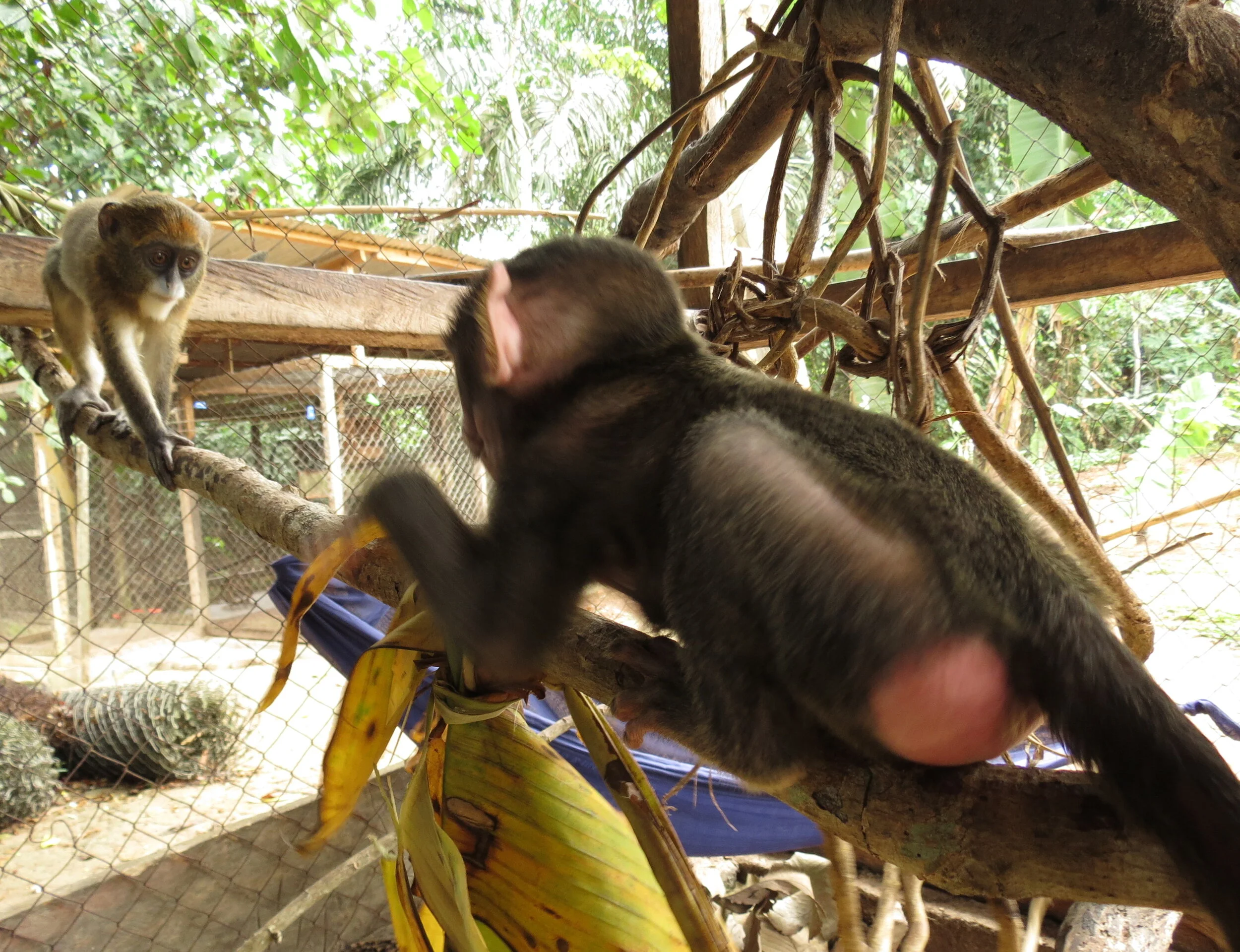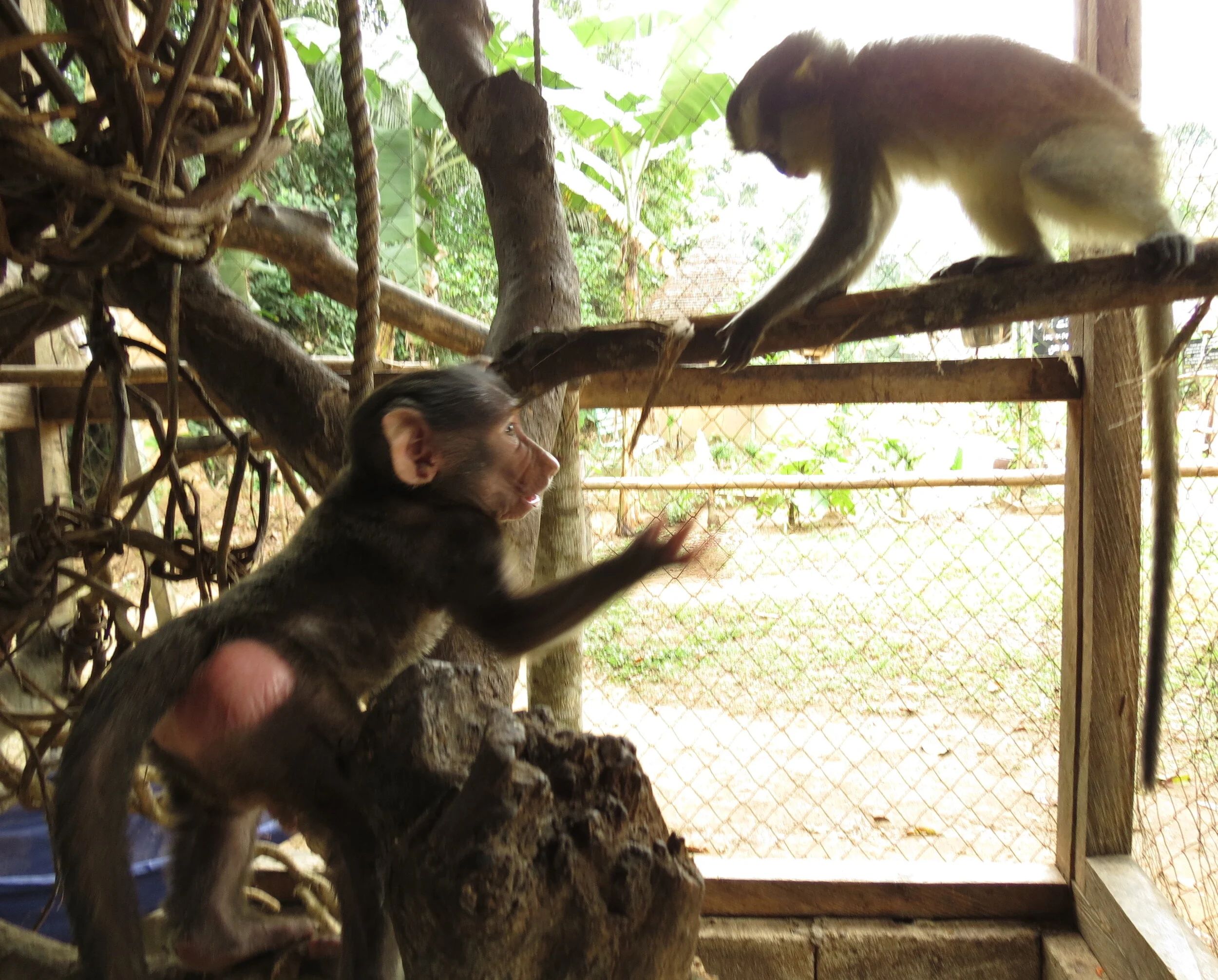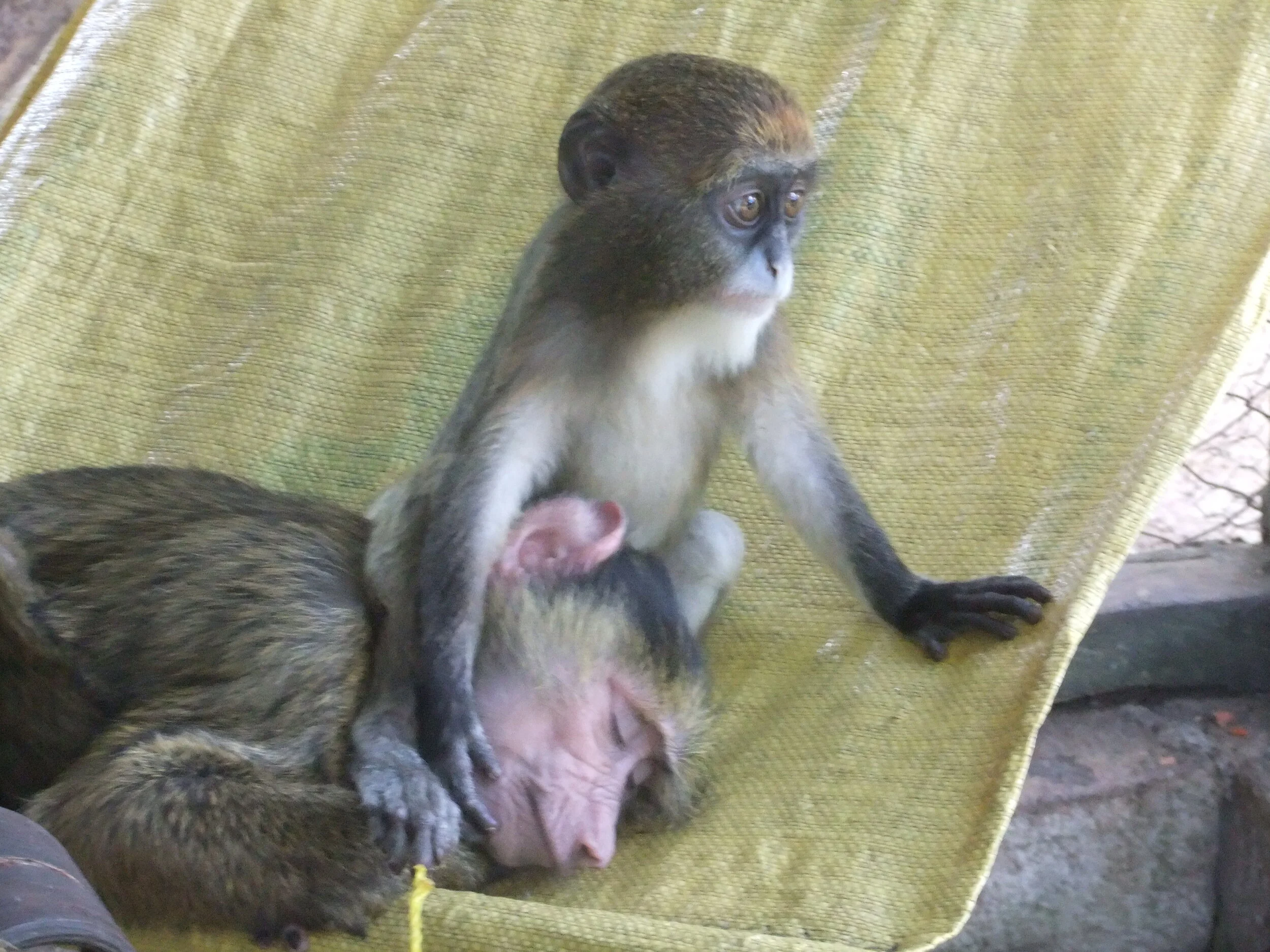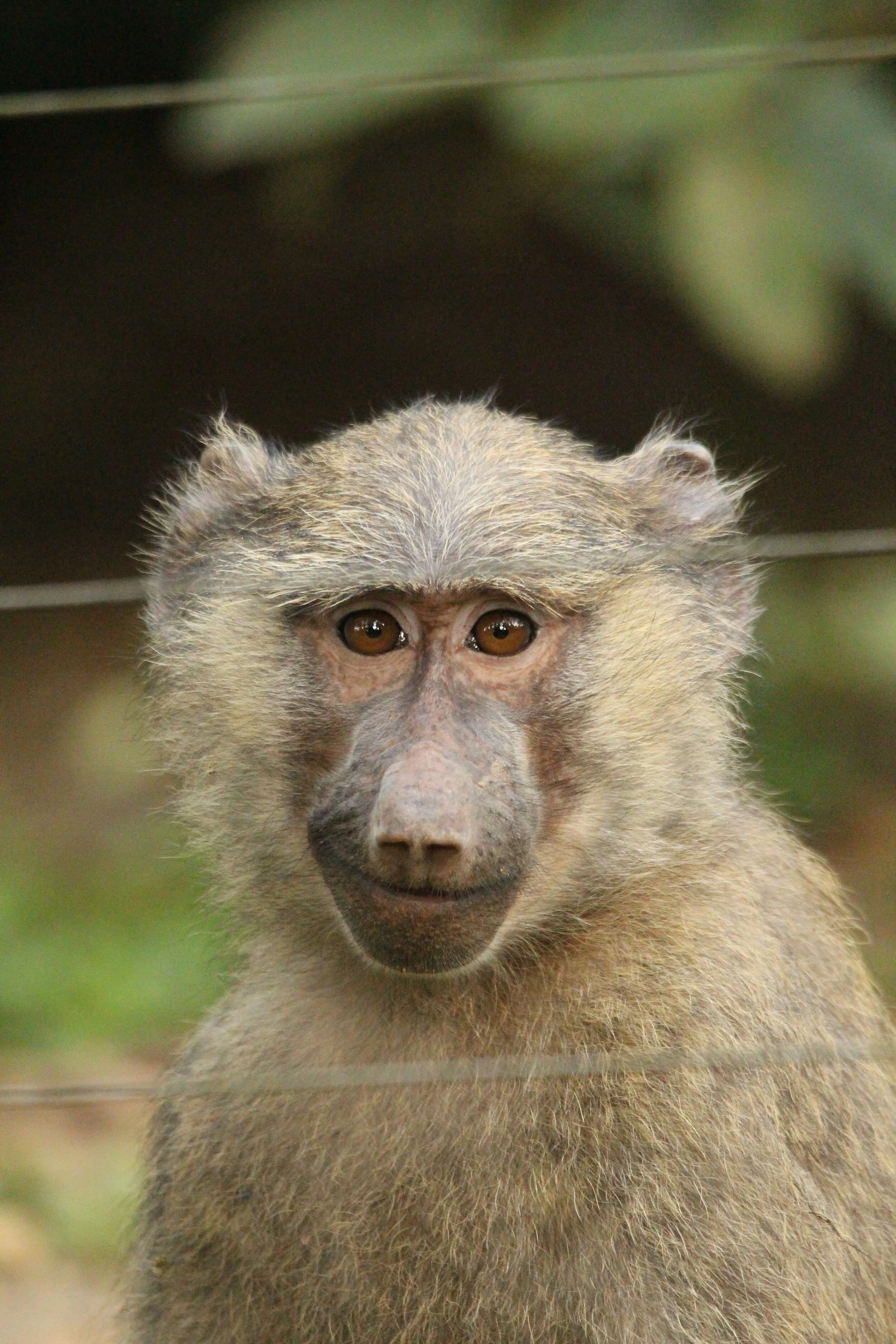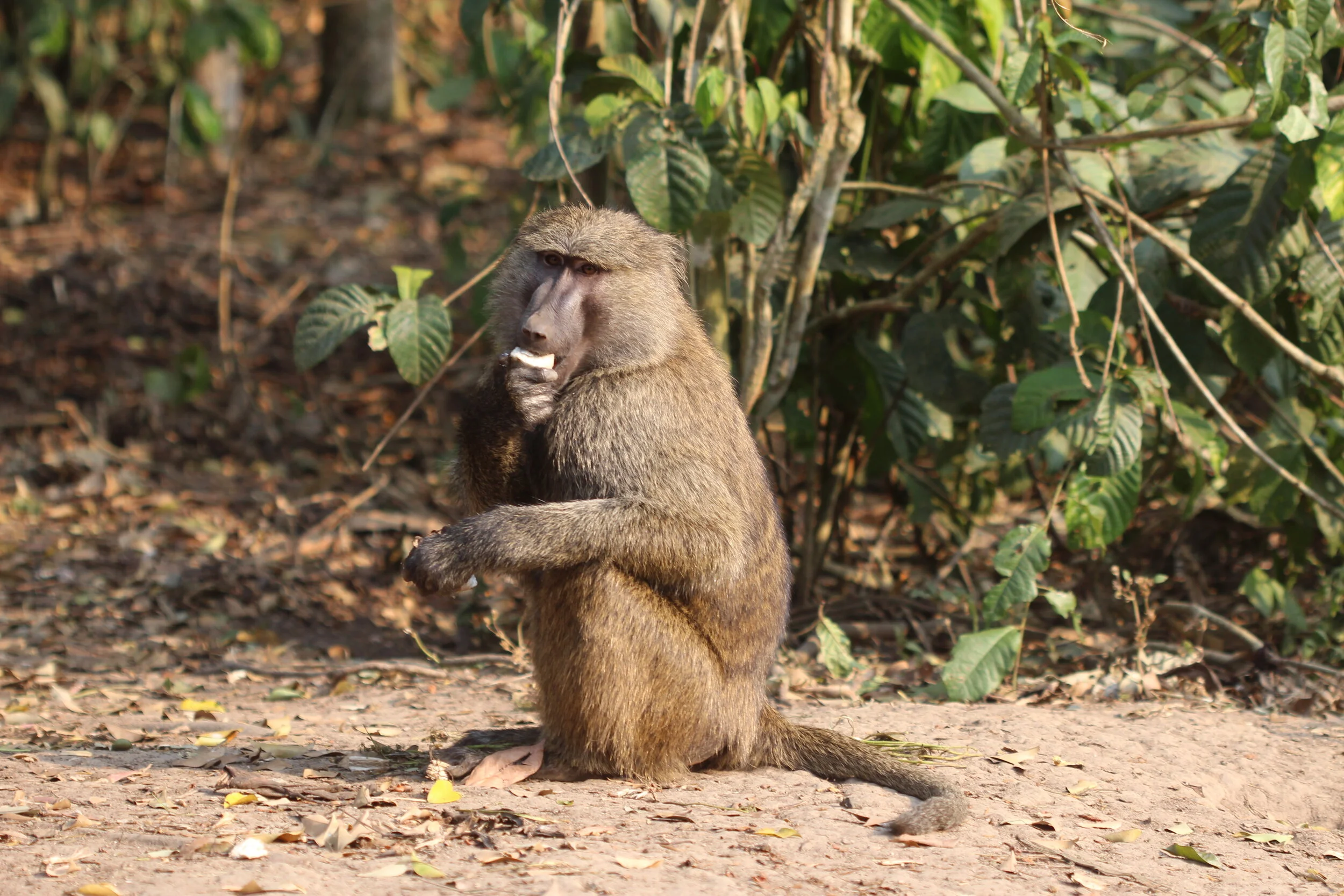The days of Sunshine: Raising an orphaned baboon in Africa - Part II
By Robin Huffman, Safina Center Fellow
His three-month quarantine period with me completed, Sunshine the baby baboon is ready—more than ready—to meet his first monkey friends. Abida and Nunu are young monkeys who, when they’re big enough, will join a large group of various guenon monkey species in their lush forested sanctuary enclosure. Abida is a male De Brazza’s, distinguished by a silky cream-colored beard (which even females have) and a low flat vocalization that sounds remarkably like a duck. Nunu is a sweet-natured female crowned guenon with a distinctive mohawk and a soft lilting bird-like chirp. When they’d been introduced, Nunu was intimidated, but by the second day they were inseparable. Abida and Nunu are older than Sunshine (who’s now about six months), but they’re half his size.
Nunu, female crowned guenon, Sunshine's first friend. Photo: Robin Huffman
Abida, male De Brazza's guenon, Sunshine's first friend. Photo: Robin Huffman
I’ve let Sunshine see them from outside their habitat. Finally, the day arrives when I put the eager boy in with them. Sunshine, ecstatic, lunges towards them sporting his play face—mouth wide open. That scares them. With startled cries they run to the far corner. Then, angry that he’d frightened them, they rush back and nip him. Sunshine doesn’t understand. By the next day, though, the monkeys realize Sunshine is just a big goofy baby, like the 1950s cartoon character “Baby Huey.” They become his buddies and his nurturers. Abida’s favorite pastime soon involves initiating wrestling matches with the baboon, who laughs nonstop as they roll around on the hammock until they fall off, landing onto a floor thickly carpeted in forest leaves. Occasionally, during Sunshine’s frequent baby naps, Abida nestles alongside, tugging on his ear or draping his arm around him.
Abida and Sunshine. Photo: Robin Huffman
Sunshine and Nunu. Photo: Robin Huffman
This becomes the routine. Sunshine spends his evenings and nights in my room, and at first light I carry him to his new daytime home, where he launches himself out of my arms for his pressing play date.
Two weeks before my departure, Rachel the sanctuary director says it’s time for Sunshine to transition to nights with Abida and Nunu. She knows it’ll be harder on me than on Sunshine, so she lets me move to a room within earshot of their enclosure for two nights. After an initial few minutes of lamentations on Sunshine’s part as darkness settles in, all is quiet.
Abida with Sunshine napping. Photo: Ryan Janks
Returning to the sanctuary a year later, I find him thriving with his own kind, having been introduced into the larger of two baboon troops in their dense forest enclosure. Spotting a cluster of young baboons romping next to a group of adults, I call out his name, “Sunshine! Sunshine!” The smallest, fuzziest one peels off from the group, comes over to the edge of the habitat and sits, looking at me. I recognize his mischievous grin immediately. He doesn’t call out, which makes me very happy. He doesn’t need me anymore. But perhaps my voice, and my name for him, are fond distant memories. And there he stays, just gazing at me, until I walk away, softly whispering, “Goodbye, Sunshine.”
Sunshine one year later. Photo: Maxine Lister
Almost four years later, I’m back volunteering again. Sunshine is thriving, a handsome, confident young fellow in his troop, and he no longer responds to my calling his name. As it should be. Just as it should be.
Sunshine, 4.5 years later, in February 2018. Photo: Robin Huffman
I have learned so much from these creatures, these primates orphaned at the hands of humans. And although volunteers and staff at sanctuaries can save individual lives, the future of such beings depends on our protecting the forests that are their home, enabling them to live wild and free. We must be their voice in the world. That’s why, even in the darkest dark of the night, Sunshine lights my path.
Sunshine painting 36x24 acrylic on canvas by Robin Huffman



